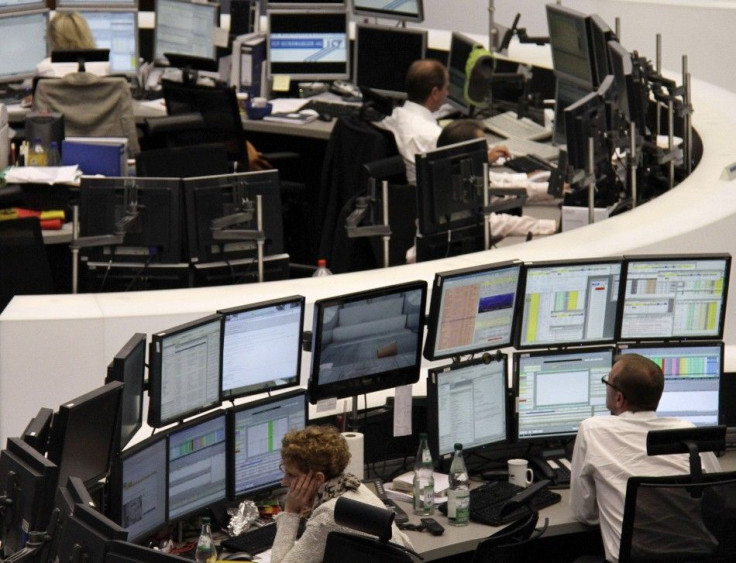Assuming An Italian Government Default, Where Should You Put Your Money?
Analysis

It's a cliché, but in this case applies: the U.S. and global investment climates remain unsettled. Currently, the key variable in the economic outlook equation concerns the European debt crisis, also known as the European sovereign debt crisis.
Over the past six months, institutional investors (IIs)have cycled between risk appetite and risk aversion and risk appetite. Risk appetite exists whenever investors sense that the world's major economies have recorded progress regarding getting a handle on the debt crisis; but then risk aversion races to the forefront after these same investors sense that the step(s) taken are either a) too small or b) off the mark.
The most recent evidence of the above concern Friday's European Union summit agreement. European leaders agreed to provide an additional €200 billion or $264 billion in bilateral loans as part of an effort to help debt-plagued governments pursue stricter budget rules. It was a significant step by the EU, and global markets initially Friday greeted the agreement favorably.
However, on Monday the mood turned more-somber, and investor confidence ebbed, with 10-year Italian government bond interest rates again rising over 6.8 percent, on concern the EU agreement is not big enough to end the debt crisis. The 7 percent interest rate level is considered to be the level at which Italy cannot service its debt. Further, investors appear to want the European Central Bank (ECB) to both buy more government bonds but to-date the ECB has given no hint that will do so.
The Asset Class Question
Against this backdrop, what's the best asset or investment class in the event of a government default in Italy? Let' s walk through them.
U.S. Stocks -- this option most certainly does not constitute a safe park for investment funds. If a European government such as Italy defaults and interest rates rise and credit tightens, U.S. stock markets would likely plummet on the prospect of slower U.S. GDP growth, and its implied reduction in earnings growth.
U.S. Bonds -- Some flight-to-safety money would likely benefit bonds -- particularly safer, higher quality bonds, including corporate bonds -- but the bond market overall may take a hit, as well, if investors view corporations as having a harder time getting financing for their needs. Any tightening of credit will serve as a brake on the wheels of commerce, and given the sub-adequate growth rates in the U.S. (currently 2.0 percent to 2.7 percent) and Europe (near recession to a 1 percent growth rate), tighter credit could tip most the developed word back in to a recession.
Gold -- All that glitters is not gold...sometimes not even gold. In a financial system and economy stressed by higher interest rates and tighter credit markets, many institutional investors would flee to gold, and gold's price would rise. But gold's price, already a high at $1,664 per ounce makes a gold move a riskier option than it typically would be. Further, gold could actually fall during an Italian government default, if investors conclude that the default and consequent credit market crunch will hurt the U.S. and global economies substantially.
U.S. Real Estate -- You saw what happened to the U.S. housing sector following the start of the financial crisis: it collapsed. Further, an Italian government default could lead to a substantial rise in interest rates. That would only sap a still-sluggish U.S. housing market. Buy a home if you've found your dream home or if you must purchase, due to a move; but don't buy a home if you think it will appreciat 7 percent to 10 percent per year: in many U.S. markets, it won't.
Swissfranc/Japanese Yen -- These are two currencies that probably would provide some refuge. The Swissfranc has been rising versus the dollar, due to the U.S.'s large budget deficit and national debt; the yen, less so, due to the Bank of Japan's effort to limit its rise. Hence, putting a portion of your portfolio in the franc or yen appears to be prudent, if you have that option. Here again, however, the tactic is hardly fail-safe: investors may push down the value of the franc and yen, if they believe those two economies would be hit hard by a slowing global economy.
Oil - the most vital commodity -- Oil is the commodity that rarely seems to drop, or at least drop for long. After it plunge to about $35 per barrel during the financial crisis' acute stage in the fall 2007/winter 2008, it took less than 12 months to double, and West Texas Intermediate is once again flirting with $100 per barrel. Oil traded Monday at mid-day down $1.47 to $97.92 per barrel. Rising demand in emerging markets provides a modest amount of safety, but here again, the global economy is a factor. If an Italian government default constrains credit markets, oil demand could slow, and that could send oil prices tumbling.
Cash - Here again, historically holding cash has been a good strategy during times of economic stress. Unless you believe a period of hyperinflation in the U.S. will ensue, cash is a good option. As noted, if you can cycle a portion of your cash into Swissfrancs or yen, that's the tack.
Foodstuffs/Life Substance Materials -- This is for the (hopefully) only small percentage of investors who believe an Italian government default will lead to a return to the barter system. In which case the basics of life will be king, not cash. But don't count on the barter system returning.
Investment Analysis: The bottom line is that no one can predict with certainty the financial and economic impact of an Italian government default.
That disclaimer listed, the argument forwarded here is that in the event of an Italian government default, the best places to park your money are: 1) Swissfranc, 2) yen and 3) the U.S. dollar.
© Copyright IBTimes 2024. All rights reserved.





















